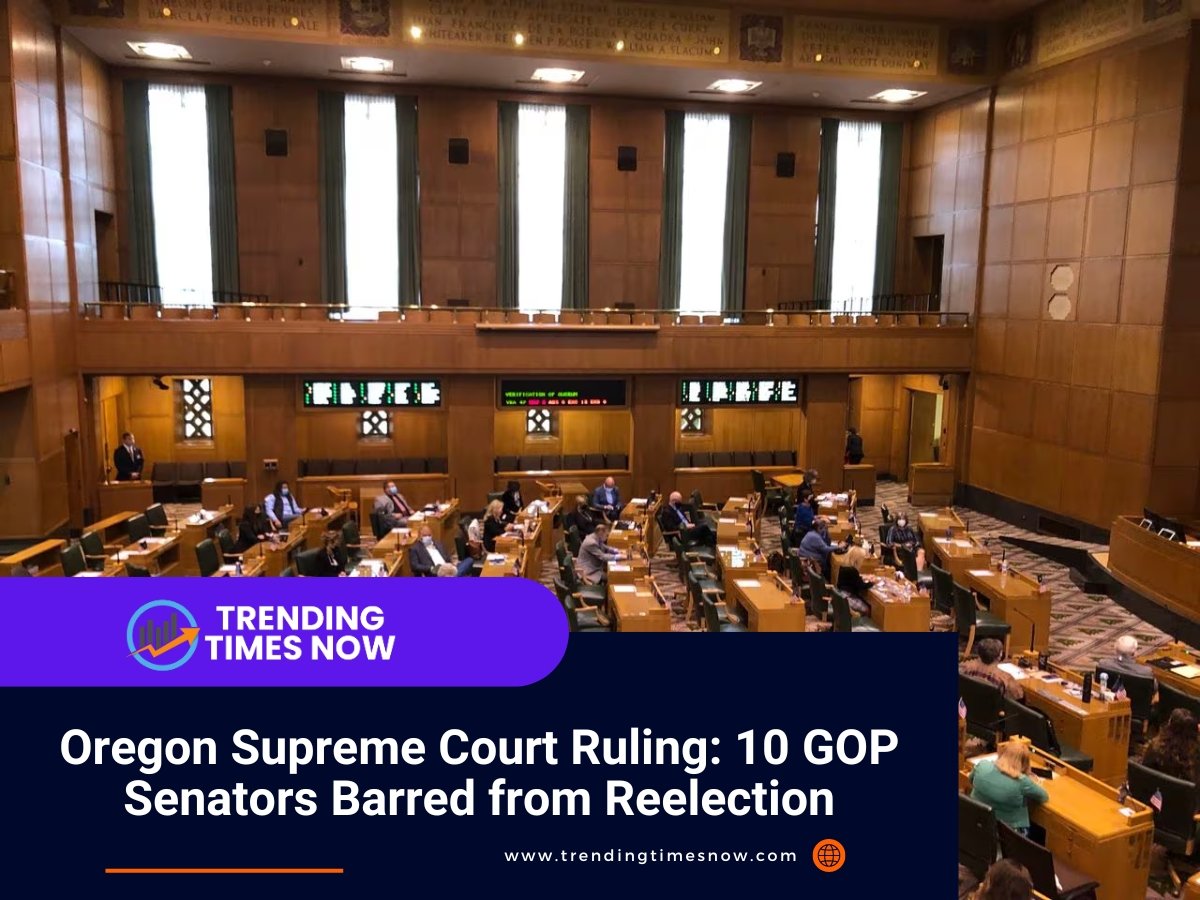In a groundbreaking decision, the Oregon Supreme Court has ruled that 10 Republican state senators who staged a lengthy walkout last year are ineligible for reelection. This historic ruling upholds the secretary of state’s earlier decision to disqualify these senators, based on a voter-approved constitutional amendment, Measure 113.
The Walkout and Its Consequences
The senators’ walkout, lasting six weeks, was a record in the state’s history and aimed at stalling legislative action on key issues like abortion, transgender health care, and gun rights. This boycott not only delayed voting processes but also led to a significant legislative standstill, affecting hundreds of bills.
Measure 113: The Crux of the Ruling
Measure 113, passed by voters in 2022, plays a pivotal role in this ruling. The measure bars lawmakers from reelection if they have more than 10 unexcused absences from legislative sessions. The Supreme Court’s decision echoes the intent of Measure 113, asserting that legislators with excessive unexcused absences are disqualified from holding office in the following term.
Legal Arguments and Interpretations
The crux of the debate centered around the interpretation of Measure 113. The senators contended that the measure’s language allowed them to run for one more term post their walkout. However, the Supreme Court, interpreting the amendment, emphasized that the measure intended to bar truant lawmakers immediately from the next term. This interpretation aligns with the information provided to voters, making it clear that the lawmakers’ ineligibility would apply to their immediate next term of office.
Read: Alex Murdaugh Trial Judge Denies New Trial Amid Jury Tampering Claims
The Impact and Future Implications
The ruling has significant implications for Oregon’s political landscape. It not only bars the 10 senators from reelection but also sets a precedent for enforcing voter-approved measures. The decision aligns with the secretary of state’s stance of supporting the voters’ will. Moreover, it signals a shift in how legislative dissent and boycotts might be treated in the future.
The Senators’ Reaction and Next Steps
The senators, expressing disappointment, highlighted their concerns about the ruling’s potential to suppress dissent. The outcome of this ruling has reshaped the Senate’s composition, with at least six members, including the affected Republicans and an Independent, set to leave office. This opens opportunities for new political dynamics and possible shifts in party representation.
The Deadline Looming for Candidates
With the March 12 deadline for candidate filing approaching, the ruling has brought much-needed clarity for those planning to run in this year’s election. It closes the chapter on the senators’ attempts to seek reelection and sets the stage for new candidates to emerge.







